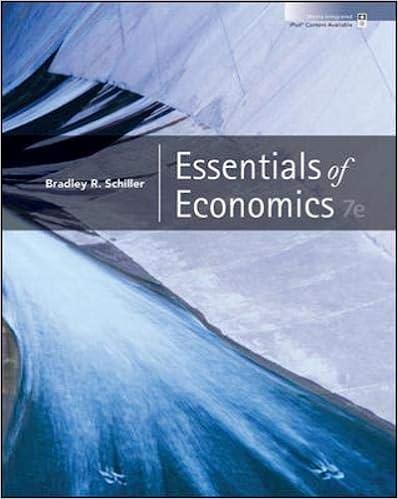Question
Two countries, Albion and Teuton, have to negotiate an international trade agreement with a third party independently and this situation can be represented as a
- Two countries, Albion and Teuton, have to negotiate an international trade agreement with a third party independently and this situation can be represented as a game with monetary payoffs.
a) Consider a game in which the two countries have to make their negotiations sequentially with Teuton negotiating first and Albion negotiating later after observing Teuton's choice. Both have only two possible negotiating choices: "Hard" and "Soft". If both choose "Hard", they get 4,000 million each. If both choose "Soft", they get 3,000 million each. If one of them chooses "Hard" and the other chooses "Soft", the former gets 6,000 million and the latter gets 1,000 million. Provide a graphical representation of the rules of this game, emphasising which country makes decisions when and what each country knows when it is its turn to make a decision.
b) Define the concepts of "dominant strategy" and "dominant strategy equilibrium". Discuss whether the game described in a) exhibits any "dominant strategy equilibrium", detailing the logic of your answer.
c) Consider now a different game in which the two countries, Albion and Teuton, have to negotiate simultaneously without observing each other's choices. Both have only two possible negotiating choices: "Hard" and "Soft". If both choose "Hard", they get 3,000 million each. If both choose "Soft", they get 5,000 million each. If one of them chooses "Hard" and the other chooses "Soft", the former gets 6,000 million and the latter gets 1,000 million. Provide a graphical representation of the rules of this game, emphasising which country makes decisions when and what each country knows when it is its turn to make a decision.
d) Discuss whether the game described in c) exhibits any "dominant strategy equilibrium", detailing the logic of your answer. Discuss what would be the outcome of the game described in c) if countries were to collectively choose alternative strategies. In which sense can the structure of this game be related to the "prisoner's dilemma"?
e) Consider a third game in which the two countries have to make their negotiating choices sequentially with Teuton choosing first and Albion choosing later after observing Teuton's choice. Both have only two possible negotiating choices: "Hard" and "Soft". If both choose "Hard", they get 1,000 million each. If both choose "Soft", they get 5,000 million each. If one of them chooses "Hard" and the other chooses "Soft", the former gets 6,000 million and the latter gets 2,000 million. Provide a graphical representation of the rules of this game, emphasising which country makes decisions when and what each country knows when it is its turn to make a decision. After defining the concept of "perfect equilibrium", discuss whether this game exhibits any "perfect equilibrium", detailing the logic of your answer.
Step by Step Solution
There are 3 Steps involved in it
Step: 1

Get Instant Access to Expert-Tailored Solutions
See step-by-step solutions with expert insights and AI powered tools for academic success
Step: 2

Step: 3

Ace Your Homework with AI
Get the answers you need in no time with our AI-driven, step-by-step assistance
Get Started


